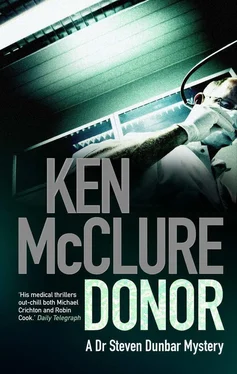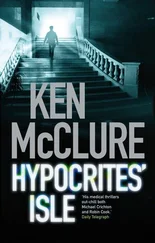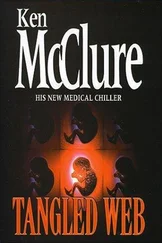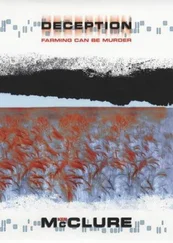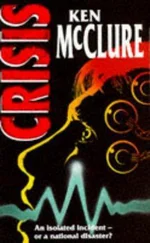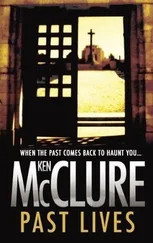Ken McClure - Donor
Здесь есть возможность читать онлайн «Ken McClure - Donor» весь текст электронной книги совершенно бесплатно (целиком полную версию без сокращений). В некоторых случаях можно слушать аудио, скачать через торрент в формате fb2 и присутствует краткое содержание. Жанр: Триллер, на английском языке. Описание произведения, (предисловие) а так же отзывы посетителей доступны на портале библиотеки ЛибКат.
- Название:Donor
- Автор:
- Жанр:
- Год:неизвестен
- ISBN:нет данных
- Рейтинг книги:4.5 / 5. Голосов: 2
-
Избранное:Добавить в избранное
- Отзывы:
-
Ваша оценка:
- 100
- 1
- 2
- 3
- 4
- 5
Donor: краткое содержание, описание и аннотация
Предлагаем к чтению аннотацию, описание, краткое содержание или предисловие (зависит от того, что написал сам автор книги «Donor»). Если вы не нашли необходимую информацию о книге — напишите в комментариях, мы постараемся отыскать её.
Donor — читать онлайн бесплатно полную книгу (весь текст) целиком
Ниже представлен текст книги, разбитый по страницам. Система сохранения места последней прочитанной страницы, позволяет с удобством читать онлайн бесплатно книгу «Donor», без необходимости каждый раз заново искать на чём Вы остановились. Поставьте закладку, и сможете в любой момент перейти на страницу, на которой закончили чтение.
Интервал:
Закладка:
He walked back to Lisa’s street and found the number he was looking for. He pressed the entryphone button.
‘Yes?’
‘Steven Dunbar. We spoke earlier.’
The electronic lock released with a loud buzz that made Dunbar think of an electric chair and he entered the building. The entrance hall was well lit and had recently been painted. It was lined with terracotta tubs that would hold pot plants in season. At the moment they held nothing but bare earth. He climbed the stairs quickly to the third floor and found one door ajar. There was no name-plate on it but he assumed this to be the one. He knocked. ‘Miss Fairfax?’
‘Come in. I’ll be right with you. The living room’s on your right. Find yourself a seat and sit down.’
Dunbar closed the door behind him and walked up to the end of the hall and in through the door to his right. He chose to look out of the window rather than sit. Although it was dark outside, the curtains had not been drawn and he could see the lights on the far side of the Clyde like strings of pearls on black velvet. He thought he heard a movement behind him and turned to greet Lisa Fairfax.
‘Hello, Miss…’ His eyes widened as a woman in her late seventies came towards him with a wild look in her eyes and her arms outstretched.
‘Joshua! You’ve come home,’ she exclaimed, and made to embrace him warmly.
Dunbar was taken by surprise. He tried to fend her off, gently because she seemed so frail, but she persisted in her attempts to hug him.
‘I think there’s been some mistake,’ he offered weakly. He retreated and fell backwards over the arm of a couch — he hadn’t realized it was so close behind him.
‘Oh my God,’ exclaimed another woman as she came into the room. ‘Mother, stop that! Stop that at once!’
Dunbar did his best to recover his composure and looked up into the distressed face of Lisa Fairfax.
Lisa was in her early thirties, slim, attractive, with shiny jet-black hair tied back and deep, dark eyes that suggested intelligence but at the moment were filled with alarm and embarrassment.
‘I’m so sorry,’ she said. ‘I thought she was still asleep. She suffers from senile dementia.’
Dunbar nodded and let out his breath in a long sigh. ‘I’m sorry I’m not Joshua,’ he murmured kindly as Lisa put her arms round her mother and led her out of the room, remonstrating with her gently as if she were a small child. She returned alone a few minutes later.
‘I’m sorry, I was sure she was asleep, otherwise I’d never have let you come in like that. Can I get you a drink?’
Dunbar smiled at the progression to social normality. ‘Gin, if you have it.’
Lisa poured them both a gin and tonic, the slight tremor of her hands still betraying her embarrassment. She handed a tumbler to Dunbar and said, ‘Please sit down.’
‘Shouldn’t she be in hospital?’ Dunbar asked.
‘She should,’ replied Lisa. ‘But there’s little chance of that these days. Her condition can’t be cured so the hospitals won’t take her. She’s been “returned to the community” after a brief admission for assessment. That’s government policy.’
‘Surely you must get some kind of help?’
Lisa shook her head. ‘I am the “community” as far as the authorities are concerned. She’s my mother so it’s down to me to care for her. The only way I can get help is if I buy it. I was doing that but I don’t have a job any more.’
‘Sounds awful.’
‘I’ve known better times,’ said Lisa.
She said it matter-of-factly rather than with self-pity. She struck Dunbar as capable woman who was up against it but coping well.
‘Tell me about Amy Teasdale.’
Lisa’s face relaxed into an extremely attractive, albeit distant, smile. Her eyes said that she was grateful for Dunbar glossing over what had happened. ‘Ah yes, Amy,’ she said, before pausing for a moment to compose her thoughts.
‘Amy was a perfectly ordinary little girl apart from the fact that her kidneys weren’t properly functional. Practically from the time she was born she’d been in and out of one hospital after another, so she was well used to them. Because of that she wasn’t the uncomplaining little heroine the press likes kids like her to be. In fact, she could be a right little madam at times, if things weren’t to her liking. I suppose that was because she’d been spoilt by parents and relatives because of her condition, but in spite of it we all liked her. She was one of ours, and we were delighted when word came through that a suitable kidney’d been found. She’d been waiting for years and within weeks of coming to us a kidney had been located and the word was that the match was good, something around eighty per cent compatible, if I remember rightly. It seemed like a dream come true.’
‘So you expected a good result?’
‘Of course. It was an excellent match and kidney-transplanting has become practically routine these days. There was no reason to expect anything else. We were looking forward to seeing Amy skipping down the ward and saying good-bye. She could look forward to a normal life.’
‘But that didn’t happen.’
‘No. She rejected the kidney and died soon after the operation.’
‘Who carried out the operation?’
‘Dr Hatfull, one of Dr Ross’s surgical team.’
‘What did you think of him?’
Lisa looked shocked at the question. She said, ‘It’s hardly my place to pass comment on the medical staff.’
‘I’d still like to know what you thought of him. This is all confidential, remember. Nothing you say will be repeated outside this room.’
‘I thought Dr Hatfull was an excellent surgeon. In that unit they all were. It’s a very prestigious place to work, a good career move, as they say. There was always a waiting list for surgical and nursing appointments.’
‘But you still think something went wrong?’
‘I am convinced Amy was given the wrong kidney. Her reaction was so strong that it must have been due to the presence of radically foreign tissue inside her. The immunosuppressants she was given just couldn’t cope. She died in agony, poor mite.’
‘Have you any idea how she could possibly have been given the wrong kidney?’
She shook her head. ‘I’ve been thinking about that ever since it happened and I know all the arguments against it. There was only one organ sent from the donor hospital, so how could there be a mix-up? The tissue type was tested both at the donor hospital and at Medic Ecosse and found to check out, but I know what I saw. I’ve seen rejection problems before and Amy was a classic case of a patient being given incompatible tissue. Nothing will convince me otherwise.’
Dunbar found himself impressed by Lisa Fairfax. She wasn’t over-emotional or hysterical. She was a sensible, straightforward, down-to-earth woman with a lot of common sense.
‘What did you do about it at the time?’
‘I went to the director of nursing staff and told her what I felt. It went down like a cotton-wool sandwich. I was told to pull myself together, that I was emotionally overwrought and that I should think about the damage I could do to the hospital with such “wild allegations”.’
‘But you weren’t put off?’
‘No, although in my present circumstances I sometimes wonder if I should have kept my mouth shut,’ said Lisa with a strained attempt at a smile. ‘But no, I went to Dr Kinscherf and Mr Giordano and asked them to investigate the possibility that Amy had been given the wrong kidney.’
‘And got the same reaction?’
‘More or less. They said my concern for my patients did me credit but becoming emotionally involved with them could distort my judgement. Amy’s rejection of the donor kidney had been just one of those things, an unfortunate roll of the dice. There are still lots of immune responses that the medical profession doesn’t fully understand. They suggested I take some time off — in practice they suspended me from duty. They kept paying me but it was conditional on my seeing my GP and some old trout with a frontal lobotomy they called a counsellor. She was supposed to “help me through my trauma” i.e., make me see sense and keep my mouth shut. When I failed to play ball with the trout or take the GP’s Prozac highway to inner peace and contentment, they sacked me. Now here I am with no job, locked up twenty-four hours of the day with a doolally old person who used to be my mother, secure in the knowledge that things can only get worse.’ She threw the remains of her drink down her throat.
Читать дальшеИнтервал:
Закладка:
Похожие книги на «Donor»
Представляем Вашему вниманию похожие книги на «Donor» списком для выбора. Мы отобрали схожую по названию и смыслу литературу в надежде предоставить читателям больше вариантов отыскать новые, интересные, ещё непрочитанные произведения.
Обсуждение, отзывы о книге «Donor» и просто собственные мнения читателей. Оставьте ваши комментарии, напишите, что Вы думаете о произведении, его смысле или главных героях. Укажите что конкретно понравилось, а что нет, и почему Вы так считаете.
